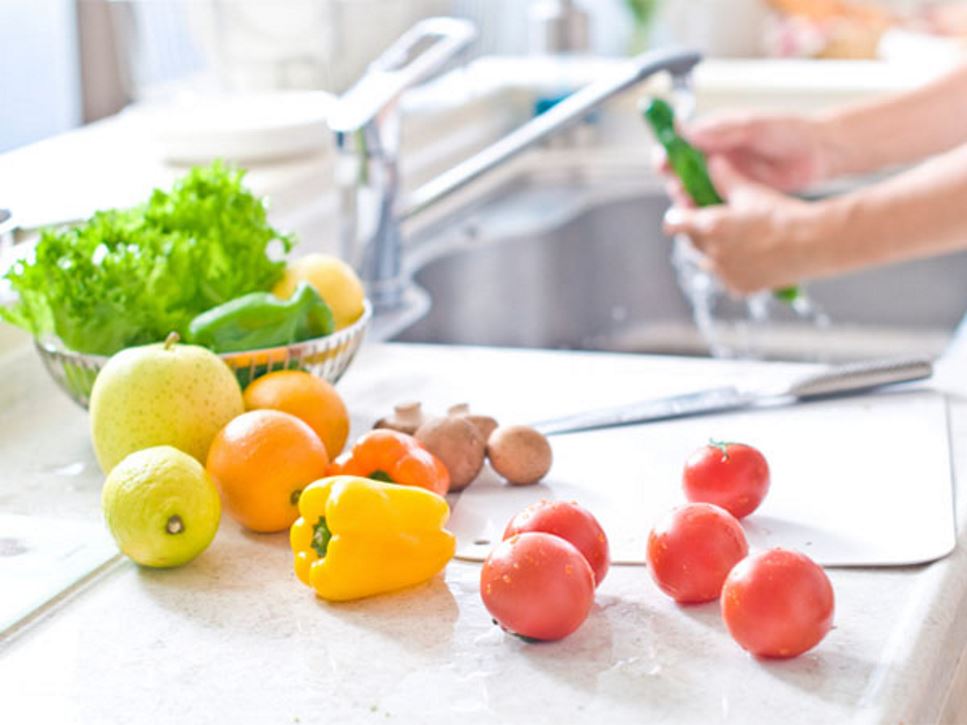Fruits and vegetables are nutrient-dense choices you should feel good about choosing and eating. Reduce your chance of getting sick from food poisoning when you use the following tips.
Keep Safety in Mind When Shopping
- Consider timing. Do you get produce from the farmers market? If so, go early to avoid produce that has been sitting out all day.
- Inspect your produce. While oddly shaped produce is fine to eat, avoid fruits and vegetables with mold, bruises or cuts. If you are not satisfied with the store's selection, ask the manager if there is more produce available.
- Skip bagged items. Pre-bagged fruits and vegetables, such as apples, avocados and potatoes, are convenient but they may contain produce that is molding. Select loose items for more control.
- Don’t over shop. Select only the amount of produce you will use within a week to reduce the chance of spoilage before you use it.
Store Produce Safely at Home
- Know where it goes. Some fresh, whole produce such as bananas and potatoes do not need to be refrigerated. For other produce, refrigeration isn’t required but it can help it stay fresh longer, such as with apples or cucumbers. Other foods are best kept in the refrigerator, or they will spoil quickly; this includes berries and mushrooms.
- Always refrigerate cut or peeled produce. If fresh produce has been peeled, cut, chopped or sliced, refrigerate it within two hours and throw away any leftovers that have been left at room temperature longer than that time.
- Remember, cooked vegetables can spoil, too. Use cooked vegetables within three to four days.
Preparing Produce
- Inspect (again). It’s important to inspect produce before you buy it, but you also should check for any mold or damaged spots before preparing it at home. Some spots, such as minor bruises, can simply be cut away before preparing or eating.
- Wash before use. Rinse fresh produce under cool, running water before eating or preparing. For items with tough skins, like potatoes or melons, use a produce brush to gently scrub the skin before peeling or cutting.
- Don’t forget to dry. Dry produce with a clean cloth or paper towel to further reduce bacteria that may be present.
- Avoid cross-contamination. Use two separate cutting boards when preparing raw meats and fruits and vegetables. This will help prevent contaminating produce with certain types of bacteria. Color-coded cutting boards can help you remember which is which.
- Minimize risky foods. Certain foods are more likely to contain illness causing bacteria based on how they’re grown or stored, such as sprouts. Cooking these foods before eating them can help reduce the risk of foodborne illness.
References
Find a Nutrition Expert
Looking for credible nutrition information and recommendations? The Academy of Nutrition and Dietetics' network of credentialed food and nutrition practitioners are ready to help!

